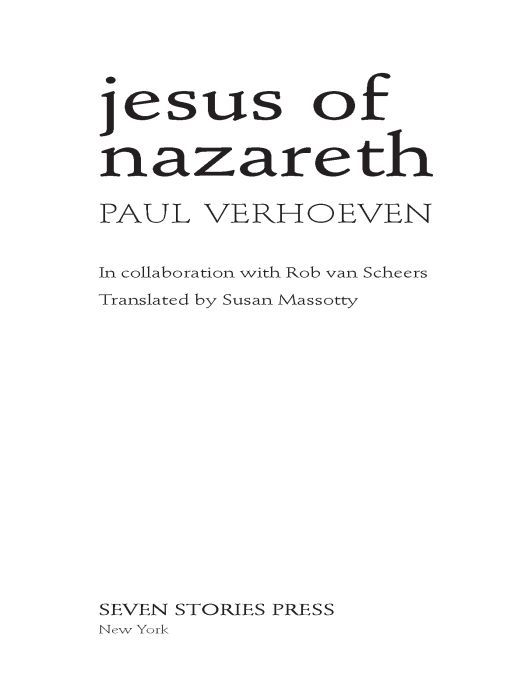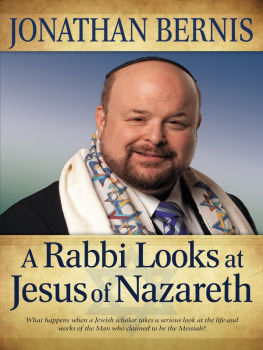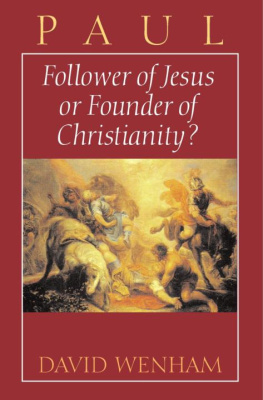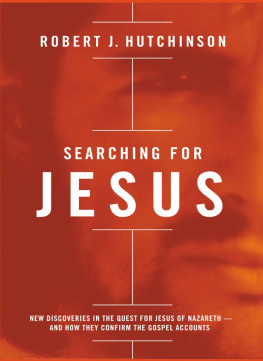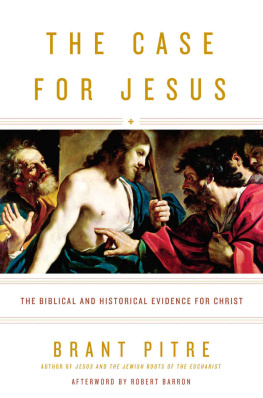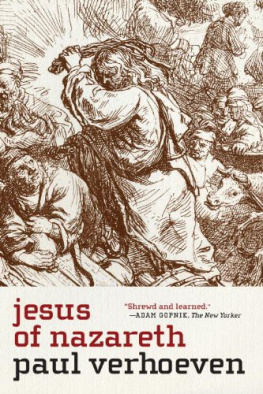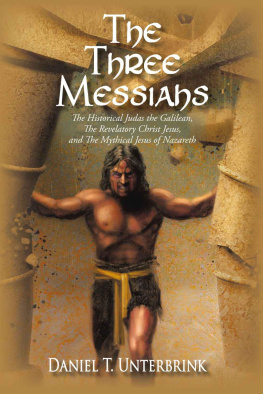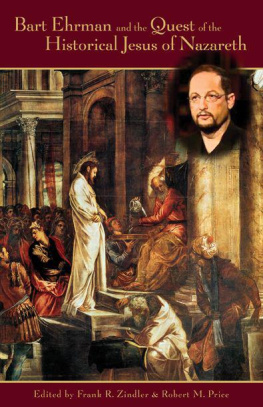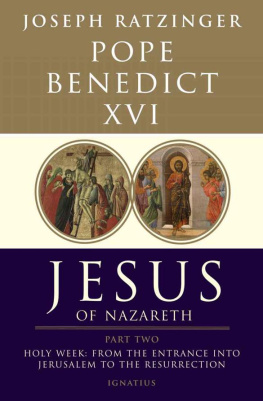Table of Contents
In memory of
Robert W.Funk
1926-2005
foreword
by Rob van Scheers
It may surprise people to learn that the director of RoboCop, Basic Instinct, Starship Troopers, and Black Book has had a lifelong fascination with the historical Jesus. But the filmmaker Paul Verhoeventhe Sultan of Shock, as Time magazine once called himis a man with unexpected and contradictory sides to his personality. Not only did he switch from sciencehe has degrees in math and physicsto the arts, but he also has an obsessive need to get at the truth, especially when it comes to historical characters and events.
Seen in this light, it is not so strange that, after his move to Los Angeles in 1985, Verhoeven joined the Jesus Seminara group of seventy-seven eminent scholars in theology, philosophy, linguistics, and biblical history. Initially an auditor at the meetings of this California think tank, he was eventually promoted to Fellow, which entitled him to vote on the issues put before the forum and to have his name listed in the publications.
Ever since then he has been the odd man in, and yet he has never forgotten his long-cherished dream of making a movie about Jesusa biopic based on a reconstruction of Jesus life, rather than on the usual myths. Other filmmakers have made movies about Jesus, of course, but as Verhoeven points out, most of them recount the Gospels with swooning adoration and excessive sanctity.
No one has ever made a realistic movie about the life of Jesus. Paul Verhoeven considers himself the right person for the job because no other director or screenwriter would be crazy enough to study the material in as much depth as I have. However, since nothing in Hollywood is ever certain until the premiere, we will have to wait and see if this particular movie ever hits the screen.
Meanwhile, we have this book in which Paul Verhoeven gives us his view of the historical Jesus. Much of his material is based on papers he wrote for the Jesus Seminar, which were discussed in detail by the members of the forum.
In the summer of 2002, he called upon me, as a journalist and writer, to help him make the book accessible to general readers. Since then, the two of us have taken a fascinating trip through history. I was struck by the fact that he worked on the book with the same passion he has always shown on the movie set. Paul Verhoeven puts his heart and soul into every project he undertakes.
Jesus of Nazareth is the result of his painstaking research. The Jesus who emerges from these pages is very different from the familiar Sunday school Jesus. While writing the book, Verhoeven never stopped asking himself who Jesus was and what he believed in.
A rather odd and unexpected development that took place outside this project was the revival of the religious debate in Western society, even in highly secularized countries such as the US and the Netherlands. Given the ferocity of the debate, some people are bound to object to Verhoevens unorthodox ideas about Jesus. After all, the author is neither a theologian nor a practicing Christian, but a mathematician who became a movie director. Given his track record, even Verhoeven has to chuckle at the thought of Jesus Meets RoboCop. Many people, however, will realize that his unorthodox views can be quite refreshing and can lead to new insights. To quote a line from his movie Total Recall, Open your mind.
preface
I have no idea why, but I have been fascinated by Jesus ever since I was a little boy. When I was four years old, I asked my father one Christmasthe only time of the year my family ever talked about religionif Jesus had felt a lot of pain while he was nailed to the cross. My father thought he probably had. But if he was the son of God, I protested, couldnt God have made the pain go away? I dont remember my fathers reply.
Only years later did I read the churchs answer to that question: Jesus is fully human as well as fully divine. That is a paradox. How can you be fully one thing and fully another? I continued to think about Jesus and to read whatever I could get my hands onspecifically with the idea, ever since I was forty, of making a movie about Jesus. But when I read the Gospels, it was hard to determine what was true, somewhat true, or not at all true.
I first heard about the Jesus Seminar when I moved to Los Angeles in 1985. Founded that year by Robert W. Funk, the Jesus Seminar was a group of scholars and theologians who wrote papers and met twice a year at a four-day conference. The central question they asked themselves was: What did Jesus really say or do? For fifteen years the Fellows of the Jesus Seminar, the majority of whom were Protestants, voted to determine which of Jesus deeds and sayings were authentic. The results were published in two booksone containing Jesus words and the other his actswhich were printed according to a color code: Red meant that Jesus had undoubtedly said or done that; pink meant that Jesus had probably said or done something like it; gray meant that Jesus might have said or done that, though there was no way of knowing for sure; and black meant that Jesus had never said or done anything of the kind.
I joined the seminar in 1986. As a result of its findings, I hope I can do a better job of distinguishing between what can and cannot be viewed in the Gospels as historical. I do not always agree with the seminars decisions, and I certainly do not assume that its members will agree with everything I say in this book. In fact, some of my viewpoints are diametrically opposed to theirs. Jesus proclamation of the kingdom of God is a case in point. I think that Jesus expected God to intervene directly in Israels history by undoing the Roman occupation and establishing his own reign on earth. The seminar is of the opinion that Jesus had no such expectation and that the kingdom of God did not involve such divine intervention.
Although the members of the Jesus Seminar may not be happy with my book, I am grateful to them for allowing mea non-theologian, a non-believer, and a movie director to bootto join their ranks. One nice thing about living in the US (if you can overlook the woes inflicted on the world by the Bush administration) is that people are willing to accept you as you are, even when you do not have the proper credentials.
I am especially grateful to the leader of the Jesus Seminar, Robert W. Funk, who unfortunately passed away in 2005. During the twenty years in which I wrote papers for the seminar and attended its conferences, he did his best to help me avoid theological pitfalls. To those readers who think I have pitched headlong into them anyway, I hasten to explain that the fault is mine, for disregarding some of the seminars conclusions.
At first I joined the Jesus Seminar with the idea of making a movie about Jesus. Instead, I have written a book. At a certain point I realized that I had become more interested in Jesus himself than in making a movie about him. What Jesus had actually said and done seemed more important to me than a dramatization of his life. I felt the need to chronicle the discoveries I had made during the course of my studies, to share the truths I felt I had uncovered. A book seemed a better way to express my newfound knowledge than a movie might be.
I therefore approached my biographer, Rob van Scheers, and asked him to help me write the book. We decided that the best method would be for him to interview me. Ten interviewseach of which lasted three or more hourstook place between 2002 and 2005. Rob then wove those rambling conversations into a seamless monologue. We gradually realized, however, that in order to convince readers of my sometimes unorthodox views of Jesus, my arguments had to be presented more cogently. Since an ordinary book would allow me to formulate my views and substantiate my claims more effectively, we decided to jettison the monologue format. Instead, I sifted through the interviews and used them to help me organize this book, which was then edited by Rob.

